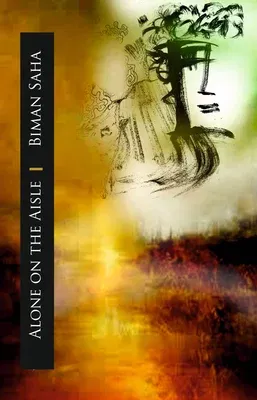Biman Saha's collection of poems, Alone on the Aisle, vividly captures
the heart of Bengali life and culture, where the Bengal terrain
represents the canvas upon which he paints man's drama, his despairs and
his hopes. The landscapes so beautifully created here express a
reverence for the homeland, a longing for times past. And yet, while Mr.
Saha's poems radiate a rich nostalgia, they are by no means naïve to the
striking contrasts and realities of life.
Mr. Saha's work inhabits an environment where hope and sadness
intermingle with memory and nostalgia, as is delicately conveyed in the
poem "Embers", where the mother river weeps for the parched earth around
her, 'despairing for the unborn seed' which rises like a phoenix from
the charred ground, transformed from smoldering embers to verdant,
fertile provider of life. Or in the poem "In Search of Ambrosia", which
like the Roman god Janus, embraces both the past and the future, the
weight of history and the lure of that magical fruit of the gods--the
desire for the unknown ideal.
Mr. Saha's use of language is imbued with the creative forces that
enable us to experience the simultaneity of life and guides us with
sensitivity from the burdens of the past to the hope of the future. He
not only pays tribute to the intoxicating lure of a simpler time under
the mystical cloak of Nature's life forces beneath the depths of the
star-filled sky and its fragility--men returning to the hearth so
protective of the 'life force of Nature' harbored there--but also
celebrates how Bengali culture--her lyrical, musical traditions and her
great gurus--spring forth from her diverse, yet collective history.
In this first bilingual edition, non-Bengali readers are now able to
experience Biman Saha's inspired use of the Bengali language and
lyricism in English. This adept and articulate translation offers us the
opportunity to inhabit the emotional and intellectual landscapes Mr.
Saha has created through his poetry, and in turn gain a closer glimpse
into the Bengali culture and psyche.

